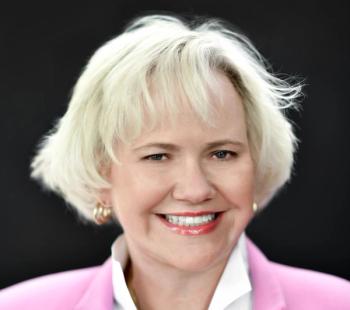
Hospitals say they could be hurt by Trump’s order on drug prices
The president’s order to lower prices of prescription drugs could lead to reduced payments to the 340B drug pricing program, hospitals say.
President Trump says he’s aiming to cut prescription drug prices for Americans, but hospitals say they could be hurt by Trump’s new
In the executive order issued Tuesday, the president says
However, hospitals are worried about provisions potentially affecting the federal
Hospitals fear that Trump is preparing to reduce Medicare’s 340B payments to hospitals, as he did in his first term.
Bruce Siegel, MD, president and CEO of America’s Essential Hospitals, says the executive order could result in less support for hospitals who participate in the 340B program.
In a
The 340B program is designed to help hospitals who serve a high percentage of patients with lower incomes and those in underserved communities. America’s Essential Hospitals, which represents safety net hospitals, would be hit hard by payment reductions to the 340B program.
“The 340B program helps hardworking, low-income Americans access needed medications at affordable prices, and essential hospitals depend on 340B savings to meet their mission,” Siegel said in his statement. “Drastically reducing Medicare payments to 340B hospitals would counter the order’s motive to ‘significantly reduce drug prices for American patients’ and threaten access to care.”
In the executive order, the president directs Health & Human Services Secretary
When the survey is completed, the health secretary “shall consider and propose any appropriate adjustments that would align Medicare payment with the cost of acquisition.”
Rob Nelb, director of policy at America's Essential Hospitals, said the order appears to resurrect Trump’s cuts to Medicare payments to hospitals in the 340B program in 2018. In Trump’s first term, his administration reduced 340B payments, costing participating hospitals about $2 billion annually. Hospitals saw some payment cuts of nearly 30%.
“Essential hospitals cannot afford these cuts because they already operate on thin financial margins,” Nelb said. “In 2022, members of America’s Essential Hospitals had an aggregate operating margin of -9.0 percent, which was far worse than the aggregate operating margins for all other hospitals (-2.8 percent).”
Brian Reid, who runs a consulting firm advising pharmaceutical companies, wrote in
“340B hospitals are going to get gored,” Reid wrote.
The 340B drug program has been the subject of
Hospitals say the program’s discounts on drug prices help them provide critical services to patients in urban and rural communities that are underserved. Without those discounts, some hospitals said they would be forced to scale back efforts to aid communities most in need.
Drug companies have sought to scale back the 340B program and say it has grown far beyond its intended scope. Critics also say hospitals in the 340B program haven’t passed on the lower costs of drugs to patients. Detractors contend the program should be focused on safety net hospitals with modest resources, rather than large hospitals with deep pockets.
When Trump reduced Medicare payments to the 340B program, hospitals launched a lengthy legal battle, ultimately taking their case to the U.S. Supreme Court, where they won
However, it’s important to note that the high court didn’t rule that Trump lacked the authority to change payments. Rather, the justices found that Medicare didn’t follow the proper procedure in changing payments because it didn’t perform a required survey.
With the new executive order, Trump is directing the health department to perform such a survey, which could pave the way for changes in 340B payments.
Ted Okon, executive director of the Community Oncology Alliance, said in a
"Consolidating hospital systems, which are supposedly 'non-profit' entities, are excessively profiting off of prescription drugs by buying low through the 340B Drug Purchasing Program and then exorbitantly marking them up," Okon said.
Lawmakers have introduced bills in recent years to
U.S. Sen. Peter Welch, a Vermont Democrat, introduced a























































































